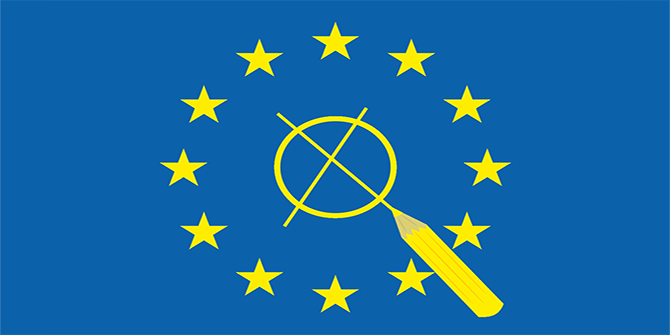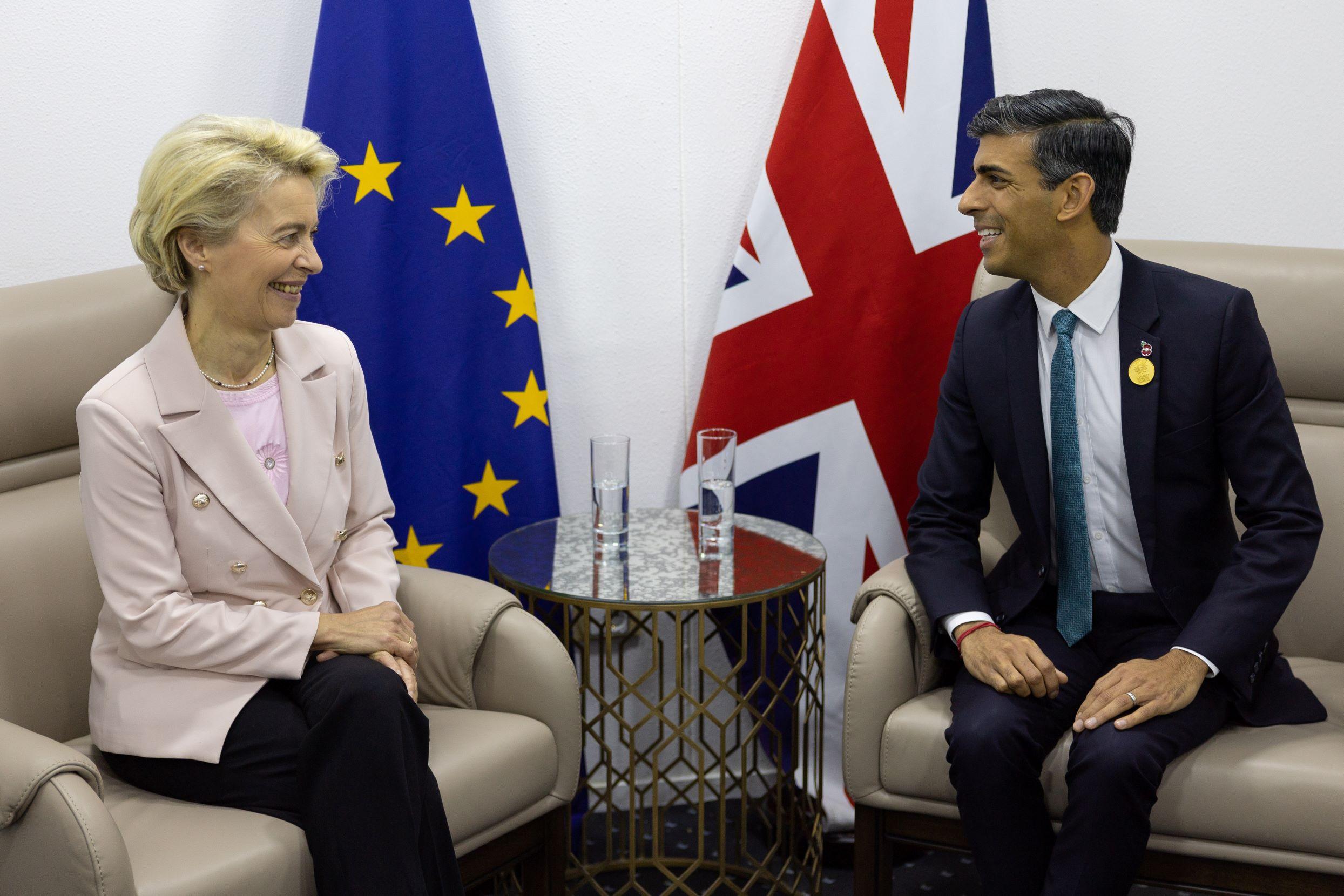 Unlike other British Prime Ministers, David Cameron often invoked his personal faith in public, and more than once called Britain a ‘Christian country’. Chris Allen examines why Cameron and the Conservatives’ discourses about ‘doing God’ were not as straightforward as they may at first have seemed.
Unlike other British Prime Ministers, David Cameron often invoked his personal faith in public, and more than once called Britain a ‘Christian country’. Chris Allen examines why Cameron and the Conservatives’ discourses about ‘doing God’ were not as straightforward as they may at first have seemed.
Since Alistair Campbell notoriously told Tony Blair during an interview with Vanity Fair in 2003, “we don’t do God…I’m sorry. We don’t do God” the phrase has gained traction in political, media and academic spaces. A shorthand way of referring to religion acquiring an increasingly prominent role in British politics, there has however been little consistency or coherence as regards what it actually means to ‘do god’. While New Labour was publicly reticent – not least because of Campbell’s intervention – its approach was inclusive and decidedly multi-faith. But under the three Conservative-led governments since, while the desire to ‘do god’ has been more overt, most striking has been the marked shift away from the multi- in preference of the mono-; more singularly, Christianity.
This was most evident in the public discourses of David Cameron as Prime Minister between 2010 and 2016. Routinely invoking Christianity, not only did he speak about the impact religion had on his personal and political lives but so too how Christianity was a necessary component of British identity, oft reiterating how we are a ‘Christian country’. Such candour is unusual in that almost all British Prime Ministers have historically been unsure of the benefit of utilising religion. Similar is also evident in the historical reluctance by politicians of all persuasion to couple Britishness with any specific religious tradition.
Anomalous in the British political spaces, Cameron’s confessionals were even more unusual in that prior to becoming Prime Minister, he described his faith as similar to a poor radio signal that “sort of comes and goes”. By the time of his speech to mark the 400th anniversary of the King James Bible in 2011, there had been a significant change. Stating that he was a “committed” Christian albeit not “on a mission to convert the world”, Cameron addressed ‘doing god’ head on: “to me, Christianity, faith, religion, the Church and the Bible are all inherently involved in politics because so many political questions are moral questions”. Adding that the language of the King James Bible was deeply embedded in all aspects of British culture he concluded by asserting that Britain was a “Christian country”, something politicians “should not be afraid to say”.
At an Easter gathering at 10 Downing Street in 2014, Cameron went even further. He reiterated that “we are a Christian country…” and “…we shouldn’t be ashamed to say so” before adding that “we can do more of in our country when it comes to Christianity”. Most striking however was Cameron’s clarification of how ‘we’ might do more. As he explained, “what we need more of is evangelism”. Talking about how to change people’s lives, Britain needed “real moments of evangelism” he subsequently referred to evangelism two more times in the same speech. He then summarised his thinking in a piece written for the Church Times a few days later: “I believe we should be more confident about our status as a Christian country, more ambitious about expanding the role of faith-based organisations, and, frankly, more evangelical about a faith that compels us to get out there and make a difference to people’s lives”.
If nothing else, Cameron’s confessionals prompt a number of questions. Aside from asking why Cameron – who at the time did not have a majority Government – might choose to baulk political norms by speaking about his faith, one might question the prominence of evangelism. Given evangelism is the preaching of the Christian gospel with the intention of bringing others to the faith, it is not clear how this fit with someone who described himself as “a rather classic [member of the Church of England]: not that regular in attendance, and a bit vague on some of the more difficult parts of the faith”. Similar questions might be asked as to why a Prime Minister with a less than convincing faith chose to risk breaking historical political conventions by explicitly linking Britain and Britishness with Christianity, at a time when growing numbers of people chose not to identify as Christian (as per the 2001 and 2011 Census).
In trying to explain this, it could have been that Cameron had something of a Damascene moment. Given he repeatedly stressed he irregularly attended church and maintained a vague faith renders such a moment unlikely. Another is the extent to which Cameron was being metaphorical. If he was – maybe conveying the message that his Government needed to be more zealous (evangelical) – then what might he have been referring to had it not been Christianity? Given he only ever used the term alongside talking about Christianity, little scope for any alternative interpretation exists.
There is another interpretation however: that Cameron was responding to the view that New Labour’s approach to ‘doing god’ not only placed too great an emphasis on multi-faith but was biased towards Islam. A rebalancing of New Labour’s subjectivity, one explanation is that Cameron repeatedly exaggerated both his own and Britain’s Christianity. Such an explanation is not without precedent and as Martin Barker’s conception of ‘new racism’ would appear to suggest, is not without function either. Accordingly it is claimed that in the early 1980s, Thatcher’s Conservative Government routinely deployed discriminatory markers of difference based on culture or religion in much the same way those based on ‘race’ or skin colour had been prior to the introduction of race relations legislation. Not only used to justify discrimination, the oft-repeated exaggeration of ‘their’ difference also functioned to effectively confer legitimacy onto the threat ‘their’ difference was seen to pose to ‘us’ and ‘our’ norms, values, way of life, and more.
While Cameron never explicitly referred to ‘them’ or ‘their’ difference, it could be argued that he inverted the process set out by Barker whereby he repeatedly exaggerated his and Britain’s affiliation with Christianity and its perceived norms as a means of demarcating who ‘we’ are. Had such statements in isolation, then it might have been possible to suggest that Cameron’s discourses had been misjudged or misunderstood. In the context of the fact he repeatedly stated the same discourses, that other senior ministers including Michael Gove and Eric Pickles did similar as indeed has Theresa May since taking over from Cameron and the whole process appears to be more pre-conceived than having occurred by chance.
But there does remain a gap and that is exactly who ‘they’ might be. It is maybe not too unreasonable to suggest that ‘they’ may be Muslims. Evidence for such a view can be potentially drawn from the fact some Conservatives believed New Labour’s approach to ‘doing god’ was biased towards Islam. Likewise also from Cameron saying while Prime Minister that Muslims in Britain need to be more ‘more British’. If Britishness can be so aligned to Christianity, maybe this too affords some insight into Cameron’s call to be more evangelical. It would seem that Cameron and the Conservatives’ discourses about ‘doing God’ were not as straightforward then as they may at first have seemed.
_______
 Chris Allen is Lecturer in Social Policy in the Department of Social Policy, Sociology and Criminology, University of Birmingham.
Chris Allen is Lecturer in Social Policy in the Department of Social Policy, Sociology and Criminology, University of Birmingham.
All articles posted on this blog give the views of the author(s), and not the position of LSE British Politics and Policy, nor of the London School of Economics and Political Science. Featured image credit: Pixabay/Public Domain.








The sad reality is we are a divided nation. There is a division between Christianity, Muslims, Hindus and so on. We have created ghettos on the basis of religion, faith, God, South and North, Rich versus poor and haves and have-nots.
Brexit is a wake-up call for all us. The fundamental problem is our leaders. We need leaders who put the nation and its interest at the heart. A good leader is simply a people’s person who cares for human beings, irrespective of their race, gender, ethnicity, rich or poor or Hindu or Muslim.
NHS reflects British society as 1 in 20 people who are employed in the UK is employed by the NHS. We have become a nation of political correctness. We are scared to talk about racism thinking it is a taboo subject. We are scared to celebrate Christmas thinking it will offend Muslims.
Just yesterday, Hindu’s have started saying ‘We are not appreciated’. The sad reality is we have forgotten the British values of inclusion and diversity. One has to look at all senior leadership in NHS and they are all White! They appoint some weak Black and Minority Ethnic leaders who do not challenge the system.
Uni-cultural Britain has uni-cultural leadership and the country was thriving and did very well but today multi-cultural Britain still has uni-cultural leadership and poor governance and poor accountability for leaders for their behaviour or poor care.
In Wigan, where I was the Medical Director until I joined almost all leaders where White and most of them were men. I joined as the MD in 2010 and with the help of the Board and Executive Directors, we transformed the leadership, culture and values. We appointed all medical leaders for their values and implemented excellent governance and accountability for leaders and managers and all staff.
Within 8 years, we reduced harm to patients by 90% and the Trust received 45 awards and for staff happiness, the Trust was a bottom 20% in 2011 and by 2016 the Trust was voted as the third best place to work in the country by the staff.
I have now left Wigan and doing a lot of work on patient safety in India and UK. Brexit gives us the excellent opportunity. The World is open to us. But unless we get good leaders, good governance and clear accountability for leaders and for the citizens of this nation, we will continue to be divided.
One has to look at Police, senior leaders of the police force, senior leaders of University and academic and also in NHS and Public sector.
We need leaders who can unite the nation, create excellent inclusion and diversity in leadership and not by appointing some token BME leaders who do not challenge the system but appointing right value based leaders and managers and there must be excellent governance to all. Without good governance and accountability culture of bullying, harassment and victimisation will continue and our nation will suffer an untold economic crisis and social unrest. Poverty in the UK is increasing and with Brexit, there will be economic crisis unless we get good leaders who can unite the nation, create excellent community spirit with mutual respect and create thriving economy and jobs so that everyone contributed to the economy and growth of our nation.